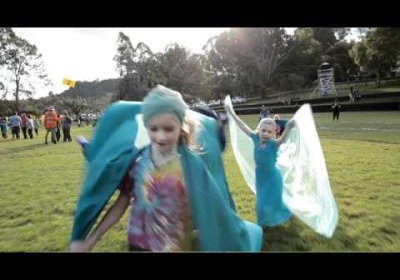Supporters of WikiLeaks and Julian Assange protested outside the Sydney Convention Centre on April 20 as Attorney General Nicola Roxon spoke inside at the Commonwealth Regional Law conference.
Earlier, three activists entered the conference venue and chanted slogans in support of Assange outside the room where Roxon was speaking. They continued for about 10 minutes before they were asked to leave.
Australia
Campaigners against the mining companies’ push to open up the Kimberley region in WA to vast gas and mineral exploitation told a public meeting on April 19 that this was the “Franklin Dam campaign of our time”.
The forum “Saving the Kimberley: Our Land or Gasland?” was organised by Stop Coal Seam Gas, Sydney.
Quit Coal crashes a Mantle Mining general meeting on April 16. One activist made it into the meeting to ask Mantle's directors how they justify trying to destroy Bacchus Marsh farmland for coal exports. The results are admittedly excruciatingly awkward to watch, but must-see viewing.
Hundreds of committed citizens of Keerrong and The Channon form a human map of our roads and creeks. The legal system and governments have failed us. Now we're taking a stand. We won't let gas miners contaminate our water, air and land with toxic chemicals.
Tasmania is facing a series of big, interlinked problems. These include:
• a health system in crisis,
• job losses in other public services causing big service inadequacies and unacceptable workloads and stress on frontline staff,
• bleeding of skilled professionals and new graduates to other states,
• the highest unemployment rate in the nation,
• an economic recession, and
• a rising cost of living.
All I really want to say is “thank you”. And there is plenty I want to thank you for.
I want to thank you for not cancelling your April 18 evening conversation with Martin Flanagan at the Melbourne Wheeler Centre to discuss your new book Am I black enough for you?
It was a very powerful and moving event to be part of; a reaffirming lesson of the importance of courage, humility and respect.
As we all found out, it was no easy decision for you to go ahead with the event.
Prime minister Julia Gillard’s April 17 speech on Afghanistan was widely heralded as a change of policy. It is and it isn’t.
It does set out a schedule for a partial withdrawal of troops — thereby bringing Australia belatedly into line with the US drawdown of troops by 2014. But it also affirms that Australia, like the US, will not withdraw all its troops.
About 50 people attended an April 17 rally in King George Square to mark a global day of action against military spending. The rally, organised by Just Peace Brisbane, called for Australian military funding to be radically cut back in the upcoming federal budget.
“If the world cut military spending by just one-half of 1%, we could save the lives of 6 million children," Peter Arndt, from the Catholic Justice and Peace Commission, told the audience.
”No new coal! Save the Great Barrier Reef!" was the main theme of the rally held outside Queensland parliament on World Heritage Day, April 18. Six Degrees and Greenpeace Brisbane called the rally, which attracted about 50 people.
The rally came after the April 12 announcement by deputy premier Jeff Seeney that Gladstone harbour, which is facing environmental destruction due to coal industry development, might be removed from World Heritage listing.
The decision by the organisers of the three-day Marxism 2012 to invite a broader range of international speakers and allow other socialist groups to set up stalls at its three-day Marxism 2012 conference in Melbourne over the Easter long weekend was a welcome and positive step.
The conference is organised each year by Socialist Alternative and its sister organisation, the International Socialist Organisation of Aotearoa/New Zealand.
The nuclear industry has been responsible for some of the crudest racism in Australia's history. This racism dates from the British nuclear bomb tests in the 1950s but it can still be seen today.
The British government conducted 12 nuclear bomb tests in Australia in the 1950s, most of them at Maralinga in South Australia. Permission was not sought from affected Aboriginal groups such as the Pitjantjatjara, Yankunytjatjara, Tjarutja and Kokatha. Thousands of people were adversely affected and the impact on Aboriginal people was particularly profound.
Activist Marlene Carrasco says some organisations visit refugees in Sydney’s Villawood detention centre in the same way they might make a trip to the zoo.
“You know, [some of the big NGOs], they just come in, say hello, then the zoo visit’s over and they leave,” Carrasco told Green Left Weekly outside Villawood on a gloomy Easter Sunday.
The 42-year-old Muslim woman makes the short trip to Villawood every Sunday from Merrylands, the western Sydney suburb to which she migrated in the 1970s. She said visitors needed to do more than just visit refugees — and she should know.
- Previous page
- Page 749
- Next page









